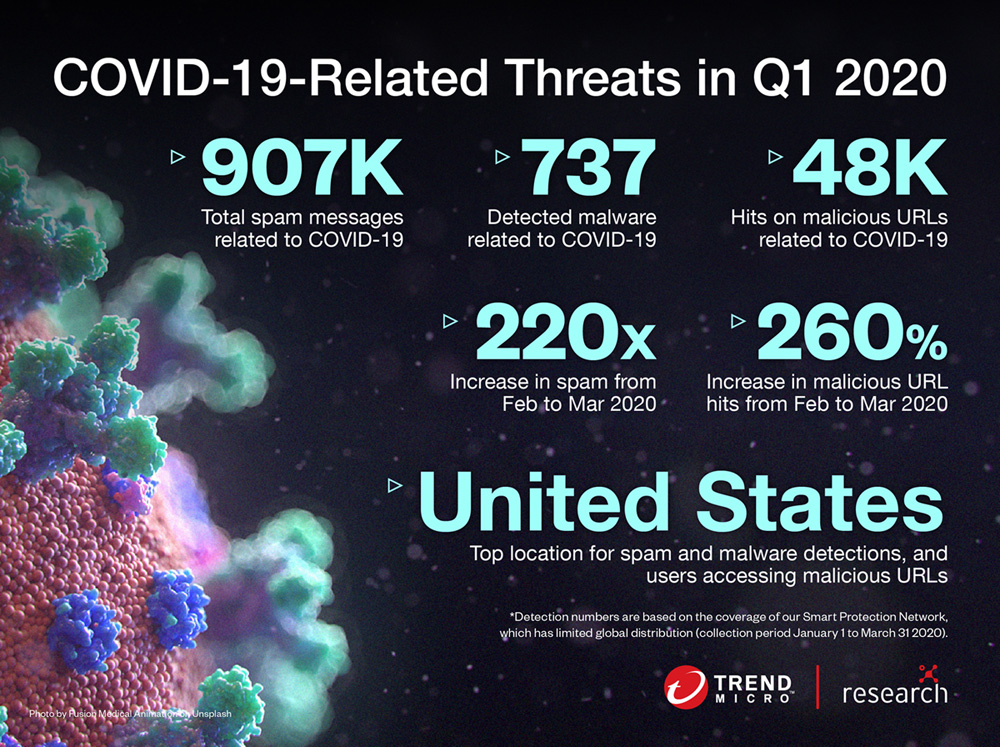 The Gulf Cooperation Council (GCC) countries have recorded 9,773 email, URL, and file threats related to the COVID-19 coronavirus in Q1 2020, according to new research from Trend Micro Incorporated, a global cybersecurity solutions provider.
The Gulf Cooperation Council (GCC) countries have recorded 9,773 email, URL, and file threats related to the COVID-19 coronavirus in Q1 2020, according to new research from Trend Micro Incorporated, a global cybersecurity solutions provider.
As the COVID-19 coronavirus continues to spread, the topic is being used in many malicious campaigns – including email spam, business email compromise (BEC), malware, ransomware, and malicious domains. Fraud activity is still on the rise as communities remain in quarantine.
During Q1 2020, the GCC recorded 8,984 email spam attacks, the 4th-highest in Asia; 772 URL attacks, the 6th-highest in Asia; and 17 malware threats detected, the 8th-highest in Asia.
The UAE led all GCC countries with 3,259 COVID-19 attacks, including 2,979 email spam attacks, 276 URL attacks, and 4 malware threats detected. The Kingdom of Saudi Arabia recorded 2,555 COVID-19 attacks, including 2,345 email spam attacks, 204 URL attacks, and 6 malware threats detected. Figures are based on cyberthreats blocked by Trend Micro.

“While the GCC countries are bringing COVID-19 coronavirus under control from a public health standpoint, that the GCC ranks in the Top 10 in the region for COVID-19 cyber-attacks shows that organisations need to do more to tighten their cyber security solutions and processes,” said Dr Moataz Bin Ali, Vice President, Trend Micro, Middle East and North Africa.
Worldwide, Trend Micro said it has blocked more than 907,000 spam messages, recorded more than 48,000 hits on malicious URLs, and detected 737 malware threats all related to COVID-19 coronavirus.
In threats related to pandemic, URL attacks increased 260x and email spam attacks increased 220x from February 2020-March 2020. The United States leads in all COVID-19 attacks.
“As GCC employees adapt to new methods of working, they should be wary of cybercriminals using popular online tools, sharing software, and file attachments in their scams,” added Bin Ali. “Unverified mobile apps tracking COVID-19 can also present major risks.”
Industry experts recommend a multilayered protection approach to protect all fronts and prevent users from accessing malicious domains that could deliver malware.









Discussion about this post